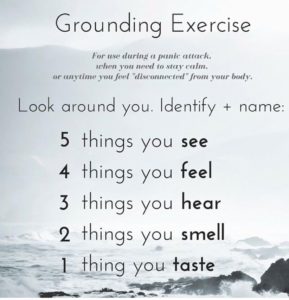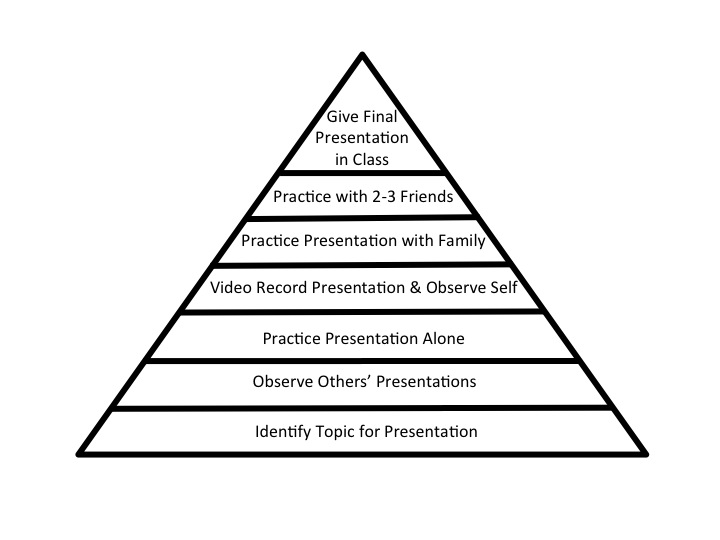How To Overcome Social Anxiety
If you identify with the questions below, you may be dealing with signs of social anxiety disorder (SAD) or social phobia.
- Participating in class, maintaining casual conversation with strangers, or even entering a crowded place make you feel very anxious
- Experience not only an emotional reaction to this fear but a physical one as well, such as blushing, trembling, etc.
- Fear and anxiety lead to avoidance that can disrupt your life
- After a social interaction, spend significant amount of time analyzing your performance and ruminating about your flaws
What is Social Anxiety
Do I have social anxiety or it is just shyness? How do I know it is social anxiety rather than simply being shy? Indeed, many people believe it is just extreme shyness. The major difference is that in symptoms of social anxiety, the intensity of the fear, the level of avoidance, and the impairment to your life is much higher.
We all, as humans, experience stress. The biological purpose of stress is to keep us alert during instances that can put us in harm’s way. If you struggle with anxiety, it may feel like stress hinders you more than benefits you. When you have social anxiety disorder, the pressure you feel is immense and affects you daily. Typically, social phobia could make you continually fear that others may scrutinize you or you make a fool of yourself. In turn, this constant worry leads to dread and even avoidance of social interaction. If you struggle with this disorder, the stress could lead to difficulty in making social connections. This is why it is essential to seek treatment. Indeed, you deserve to live your life to your fullest and most-stress-free!
Without a doubt, social anxiety disorder can be challenging to handle; however, you can help to manage your stress with the right treatment and positive changes. The people you know may not always understand how difficult this stress can be to deal with; and yet, your emotions and experiences are valid. You are very strong to be living with this disorder. Of course you are worthy of seeking treatment that can help you successfully cope with your anxiety.

How Social Anxiety Affects People
Experiencing social phobia is truly draining. This anxiety makes a person persistently fearful and vigilant. In other words, you may be continually assessing a situation and dreading that a terrible outcome will occur. People with social anxiety are constantly worried about being laughed at and dislike being in the spotlight. Obviously this feels more like they are trapped under a scrutinizing microscope. These fears can cause social anxiety sufferers to become withdrawn, dodge socialization, and develop low self-esteem.
People with social anxiety are always in their heads, constantly overthinking situations and expecting terrible outcomes to occur. This stress can even appear physical on a person. Specifically, people with social phobia may blush or tremble when they become anxious. They can be very aware of their appearance when stressed, which can cause even more anxiety for them to deal with.
What Causes Social Anxiety?
You may be wondering why you experience social anxiety. Researchers believe a variety of factors might associate with developing SAD. One factor is growing up in a controlling environment or going through highly stressful events, such as teasing and bullying. Some researchers have looked to chemicals and different parts of the brain to explain this disorder’s development. Regardless of why you are experiencing social phobia, remember that you are worthy of receiving beneficial treatment. You may not have control over the cause of your social anxiety, but you can take control over SAD’s effects in your life!

Digital downfalls and effects
We live in a world where communication through digital devices, texting, and social media platforms is the norm. Naturally it is increasingly challenging to interact with people in face-to-face scenarios. Social anxiety can start during adolescents. This demographic is heavily involved in the digital world. You may think that people who fear social interaction would prefer interacting online. However, recent studies have shown that people with SAD maintained high levels of stress behind the screen, as well. They were shown to overthink and stress over digital interactions and participate in negative self-thought. People with social phobia may benefit from managing their time online in a healthy way. Some ways to manage social media usage include:
- Keep track of your screen time. This way helps you to make a goal to stay under a certain amount of hours/time a day
- Use apps that help control your social media usage
- Instead of spending much time on social media, try to engage in different hobbies or activities, such as reading, drawing, journaling, etc.
- When you wake up, avoid checking your phone immediately
- Turn off your phone’s blue light before bed. This feature adjusts the lighting on the screen and may promote better sleep
Treatment for social phobia
Cognitive Behavioral Therapy (CBT)
It goes without saying, CBT provides effective help for people with SAD. People with social phobia tend to catastrophize events and believe that terrible outcomes will always prevail. Cognitive Behavioral Therapy allows a person to look at the world as a less scary place and manage anxiety in a healthy way. That is, CBT model allows clients to take their beliefs and rework them to be more realistic. Social interactions will become less stressful and more approachable for the person with social anxiety.
One way I like to combat my anxiety is by reading inspirational quotes. An ancient proverb that strongly motivates me is, “just when the caterpillar thought the world was ending, he turned into a butterfly.” When you enter an anxious state, you may feel like the world is, like the quote says, ending. Many people even feel symptoms that simulate dying when they experience panic attacks. Anxiety is very challenging to deal with, and anyone who struggles with an anxiety disorder is resilient.
You may feel, like the caterpillar, that everything around you is falling apart. When you try to help yourself (through CBT, breathing exercises, etc.), you are slowly turning into your own version of the butterfly. Your butterfly is the best version of yourself. Yet this version can rise above your anxiety and take on the things, like fear of social interaction, that have a hold on you.
Mindfulness-based therapy
Mindfulness meditation is helpful to manage the symptoms of social anxiety disorder. Mindfulness involves learning to be aware of your thoughts and emotions without judging or reacting to them. Through guided meditation practice, your mind is able to stay in the present moment and reduce over-analysis. A grounding exercise can help you to manage anxiety quickly. For example, in the chart below, when you have fears in a social situation, you may redirect your attention to focus on your senses. This is one of the effective techniques to reduce social anxiety.

Exposure in Behavior therapy
Exposure is a psychological intervention that is part of behavior therapy. It is considered one of the most effective techniques to treat fear and anxiety, including social anxiety.
You may be familiar with the concept of habituation. For example, you may be initially aware of the sound of an air conditioner when it is on; however, in a few minutes, you could tune out the noise and become unaware of it. The goal of exposure therapy uses fear habituation to help you. In other words, the more you are exposed to a feared situation, the less fear you would have eventually. We use the Fear Ladder to help people to expose them to a feared situation gradually till they reach the level of their most feared in social settings.

The LGBTQIA+ Community and social anxiety
Anyone who faces discrimination, like members of the LGBTQIA+ community, might become fearful of social interactions. If people in this community have lower social support, they are at higher risk of experiencing anxiety and depression.
People who are transgender, especially, are at a high risk of developing SAD. Past studies found immense stress-levels in more than half of the transgender community. Recent surveys show that 3 in 5 transgender Americans have fallen victim to discrimination.
Mind Connections is dedicated to providing support to all and is a safe space for people in the LGBTQIA+ community. The therapists in our practice work towards creating an affirming and accepting therapy experience. Mind Connections stands firm against any discrimination or stigmatization.
If you struggle with social anxiety disorder, I hope you find beneficial support that helps you to start living your most happy and successful life. After all, you deserve to rise like the butterfly! Always remember how resilient you are!
Written by Dr. June Cao
Special thanks to the contribution of Victoria Gallo, B.A. in Psychology from The College of New Jersey.



very nice put up on social phobia. Thank you
I really appreciate this post. I have social anxiety. It’s so hard to go to any parties or do presentations